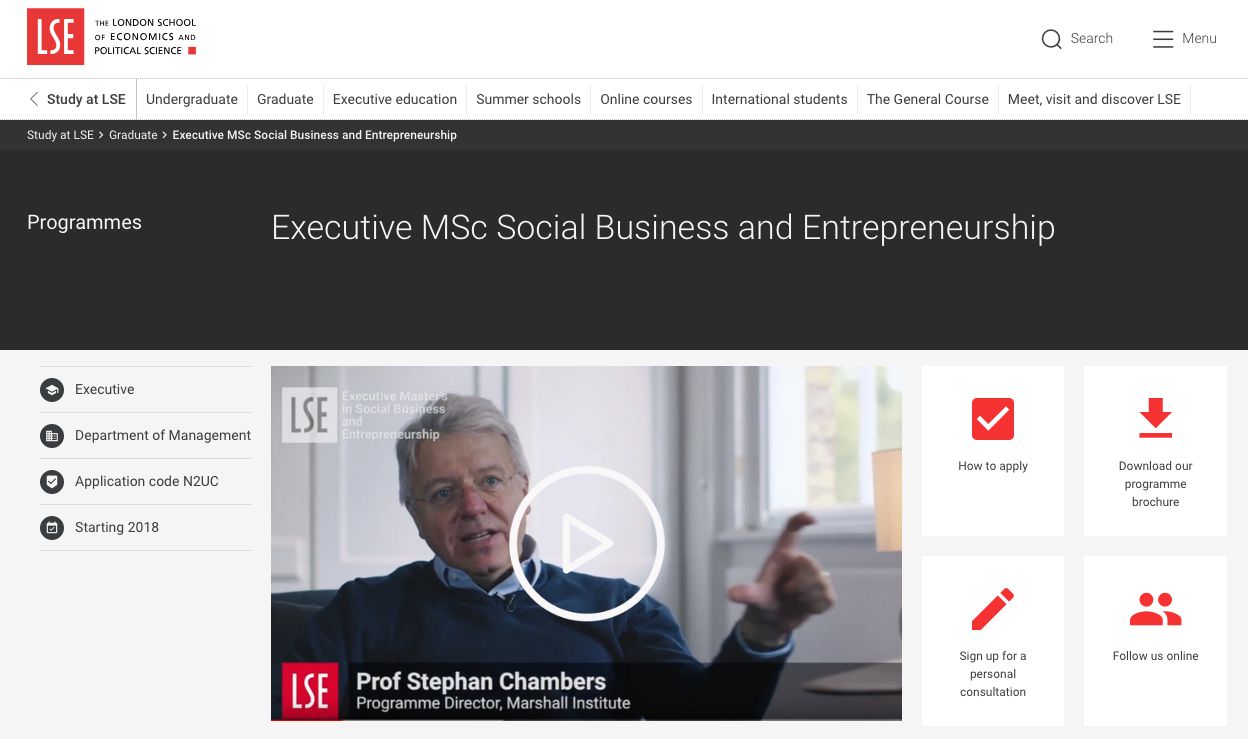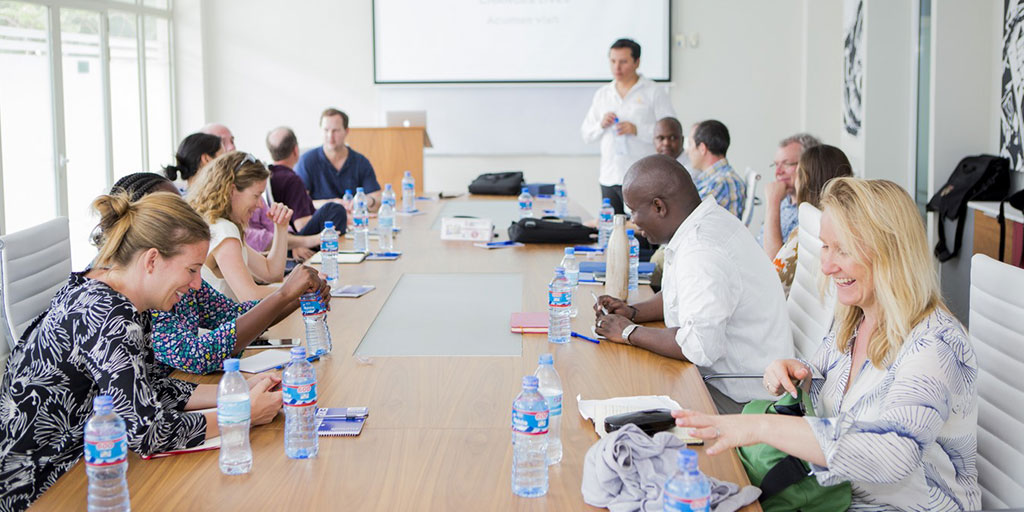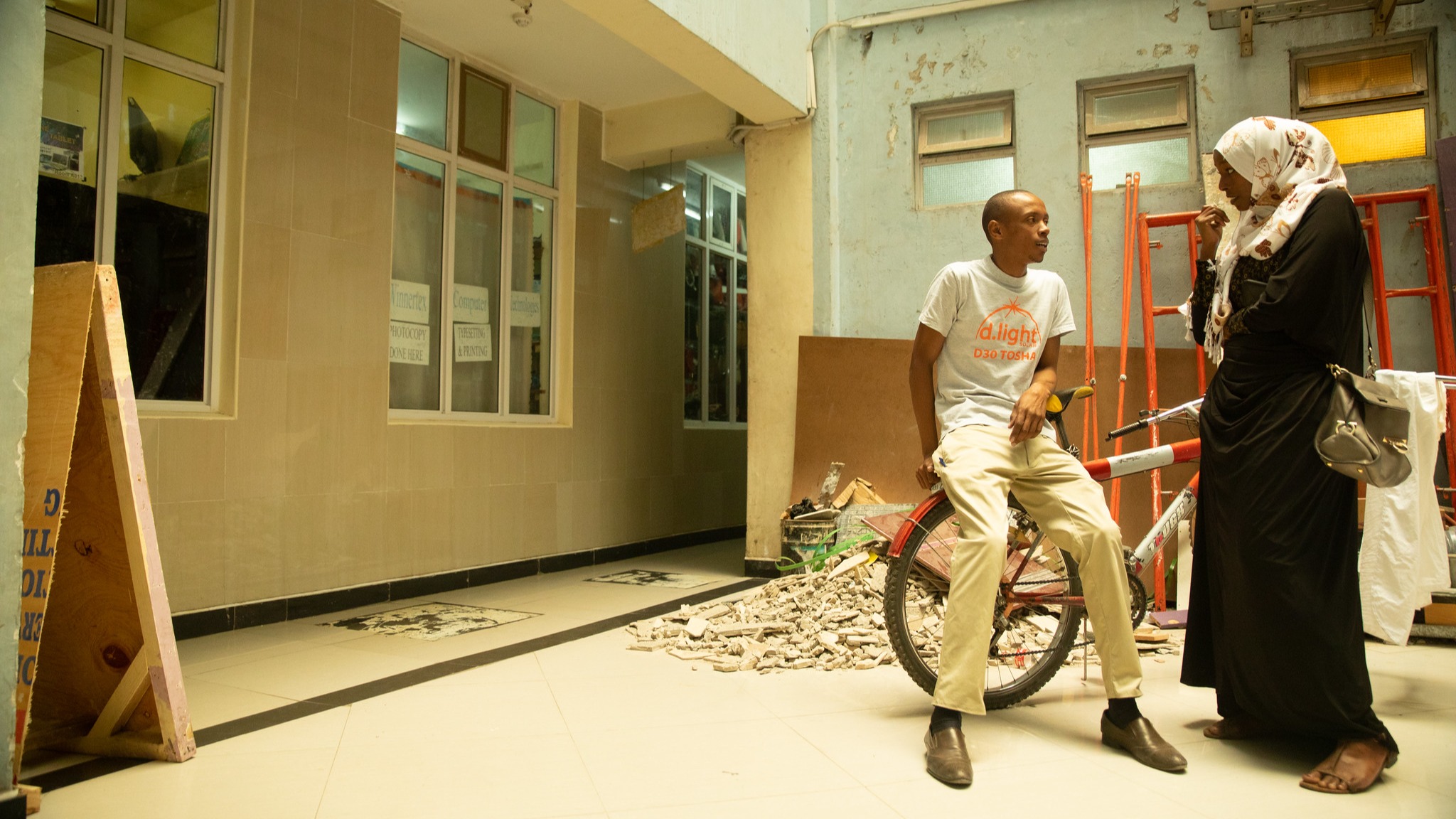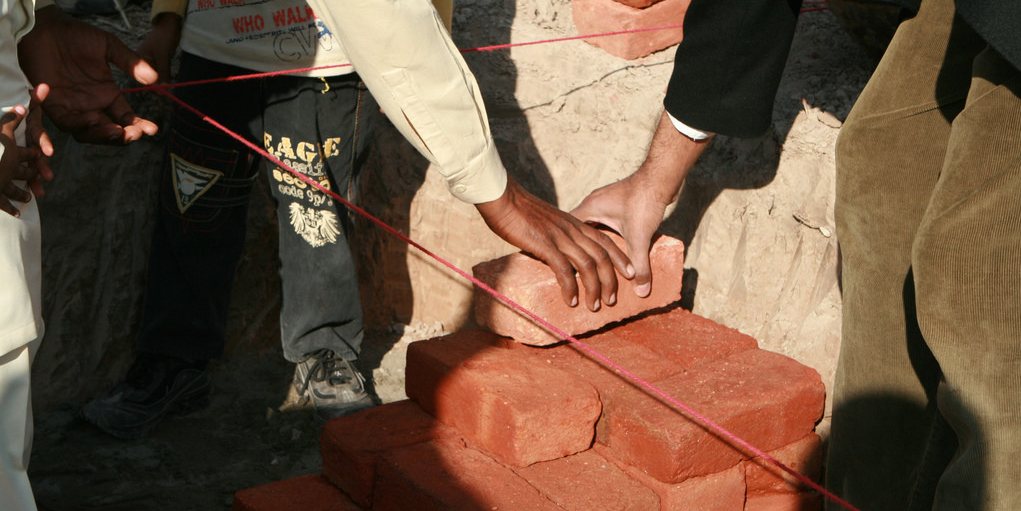Redefine Success
Graduate programs for social entrepreneurs, nonprofit staff or social change-makers
Are you searching for an impact-focused graduate program for social entrepreneurs, change-makers or social sector leaders? Join us in exploring these purpose-driven degree programs.
April 20, 2018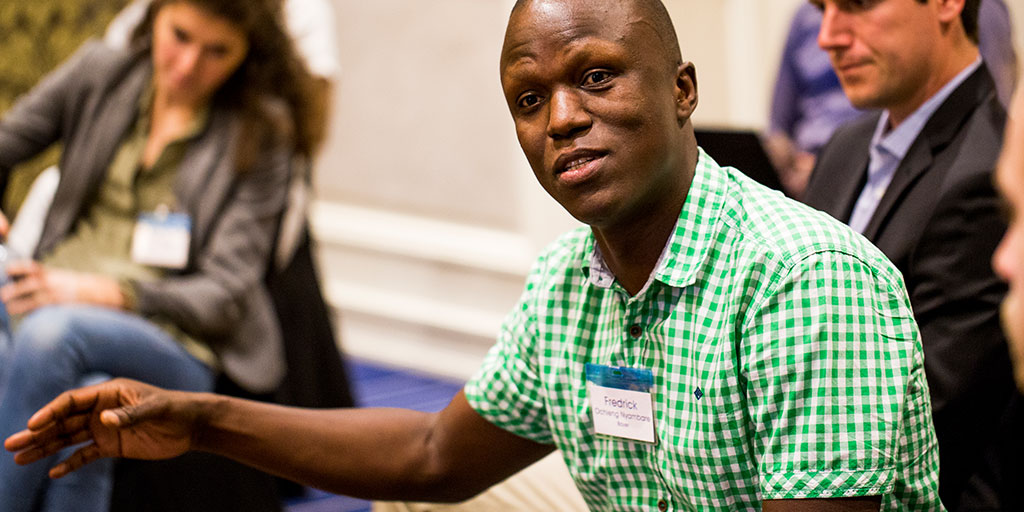
Are you pursuing a career in social change, but not sure where to go for the skills, credibility, and mentorship you seek to make your dream social enterprise job happen?
Tuition legend
Under $5k – $
$5k - $10k – $$
$10k - $50k – $$$
$50k - $100k – $$$$
$100k+ – $$$$$
Graduate degree programs
In-person degree programs
University of Vermont, Grossman School of Business
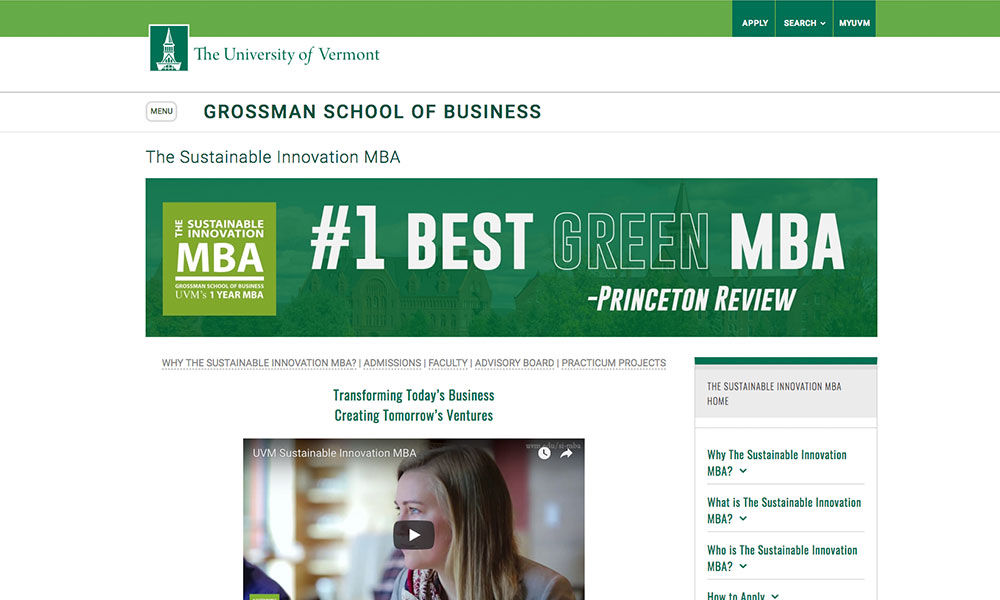
Curriculum:
Format:
Notable:
Stanford School of Business
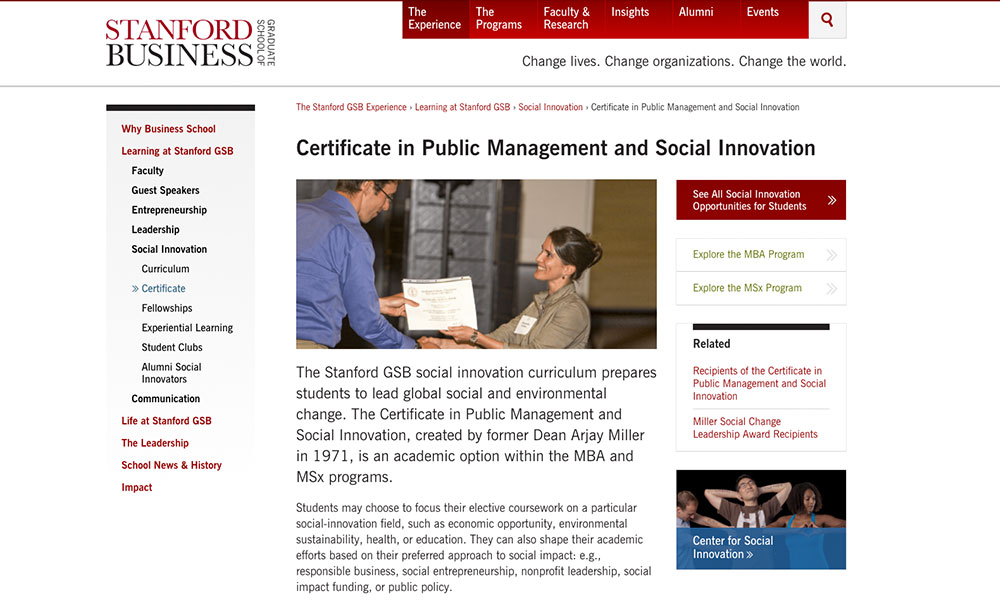
Curriculum:
Format:
Notable:
Quick note:
Oxford University Saïd Business School
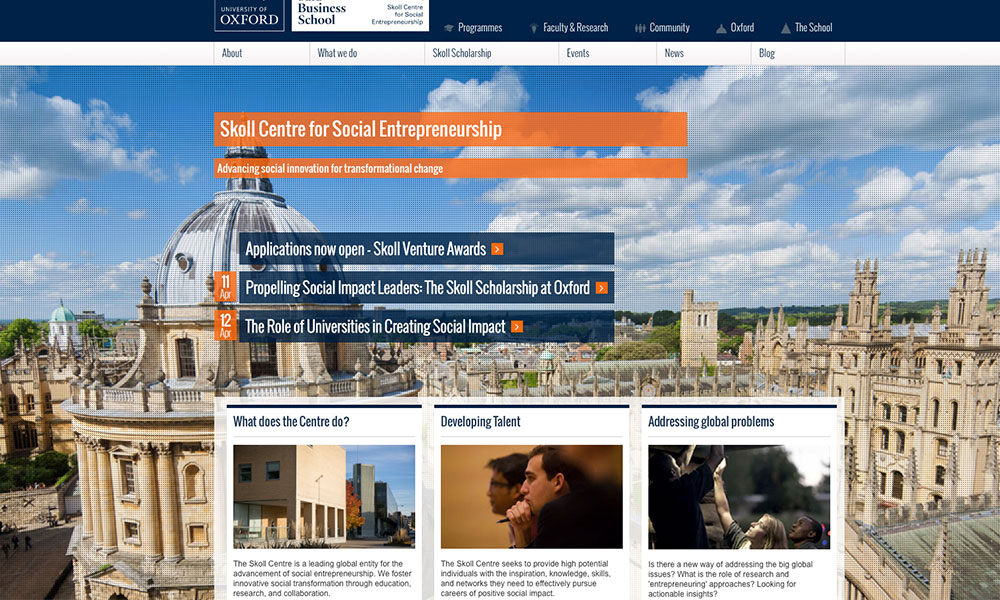
Curriculum:
Format:
Notable:
USC Marshall School of Business
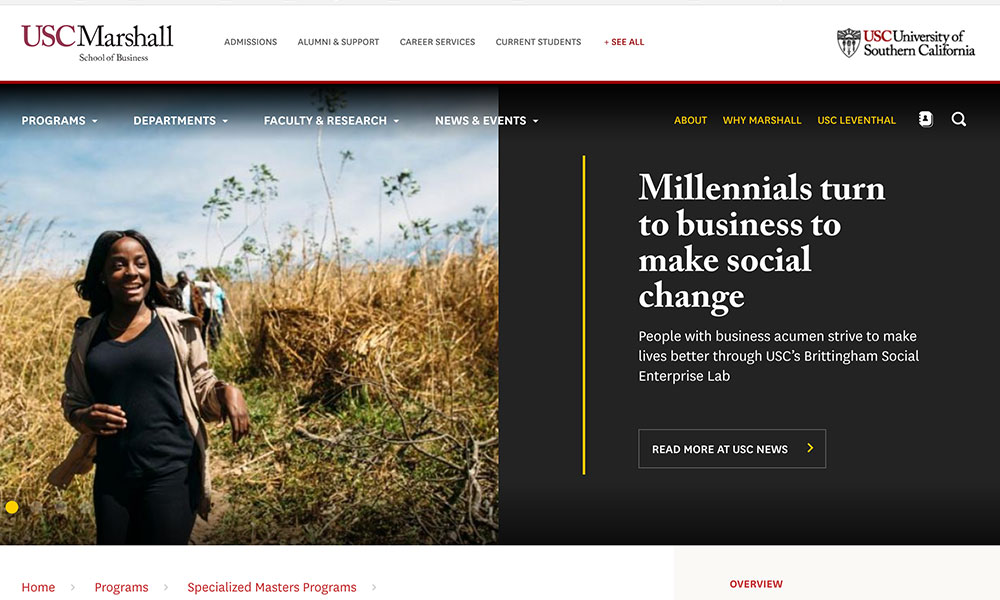
Curriculum:
Format:
Notable:
Memorial University
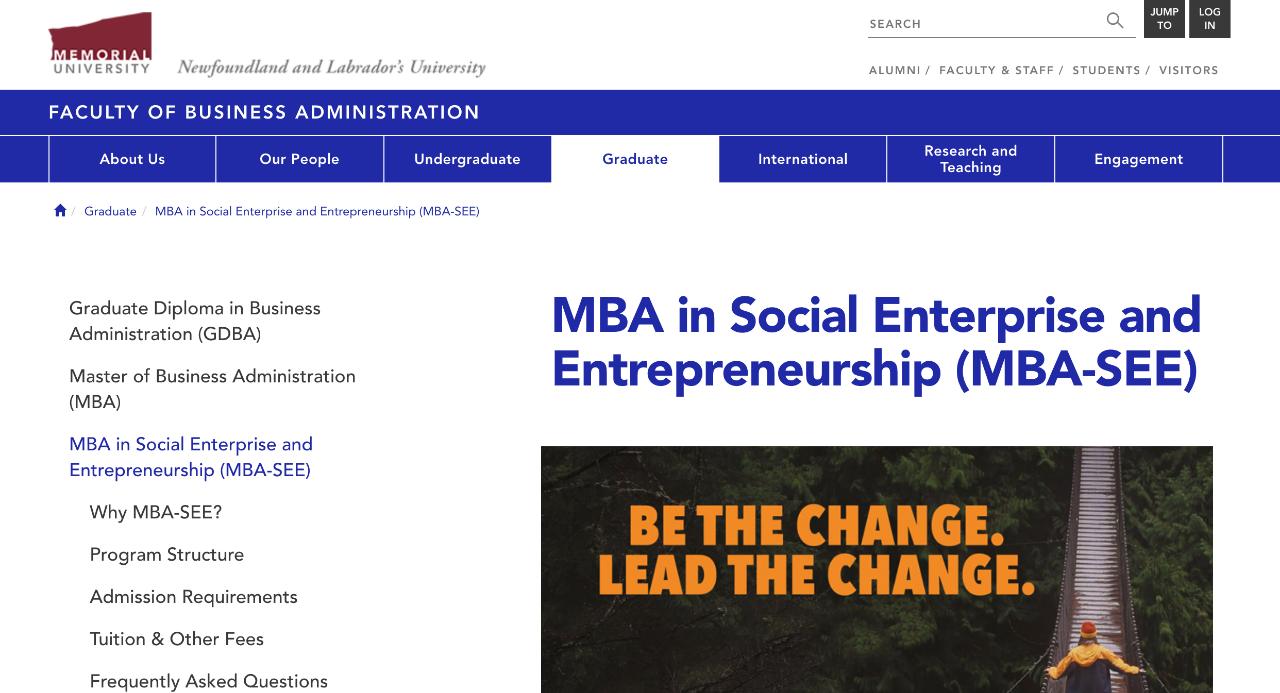
Curriculum:
Format:
Notable:
School of Visual Arts
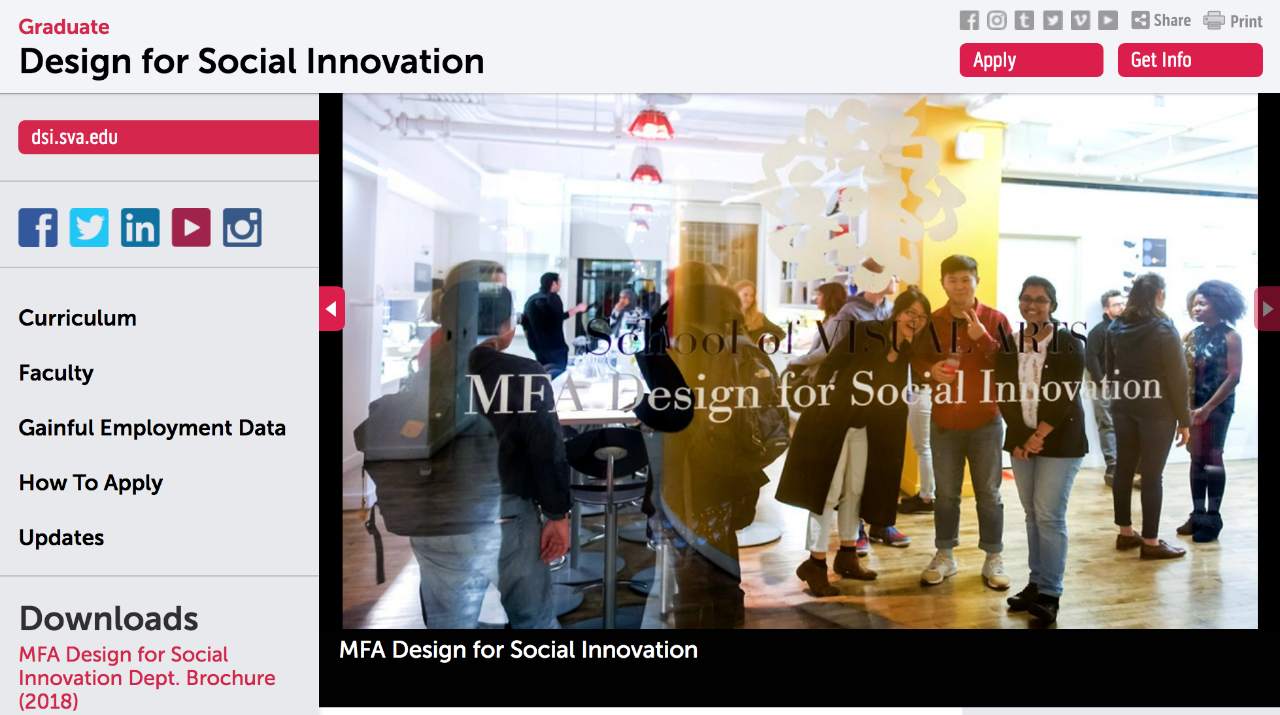
Curriculum:
Format:
Notable:
Indiana University Kelley School of Business
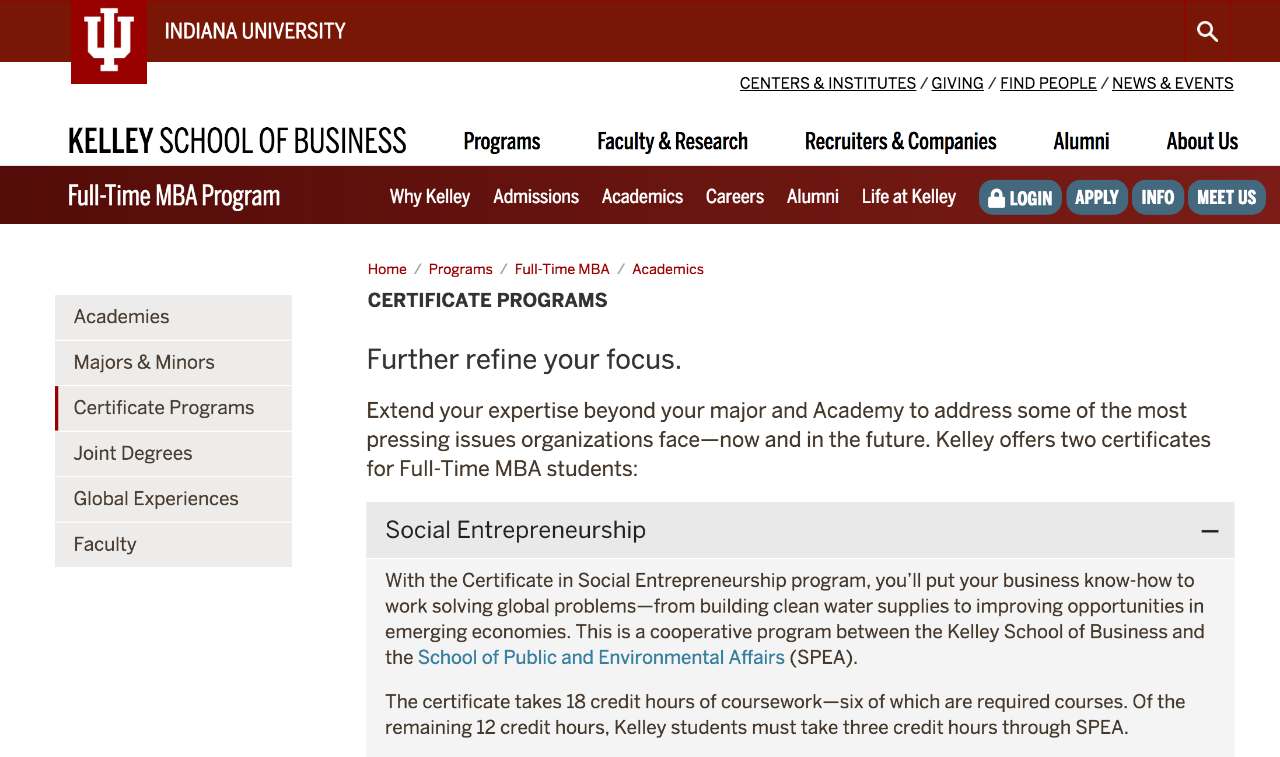
Curriculum:
Format:
Notable:
Columbia University
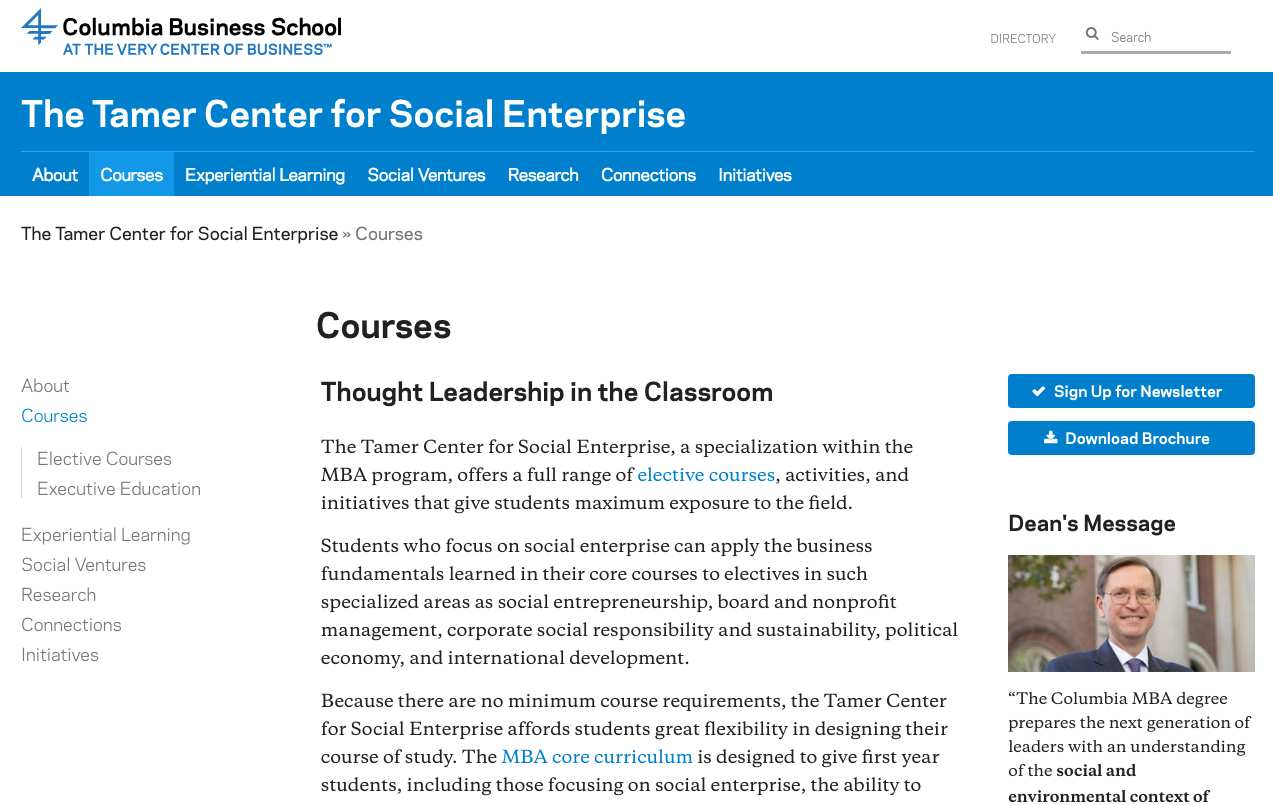
Curriculum:
Format:
Notable:
University of San Diego

Curriculum:
Format:
Notable:
Blended degree programs
Blended programs offer students the opportunity to complete their studies with a combination of in-person and online learning.
American University
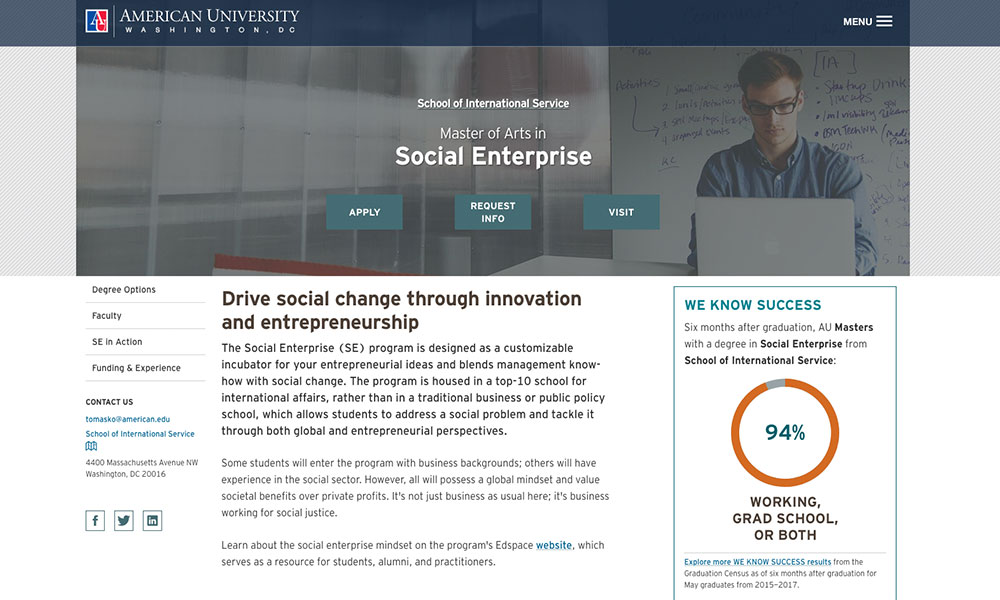
Curriculum:
Format:
Notable:
Quick note:
Pepperdine University
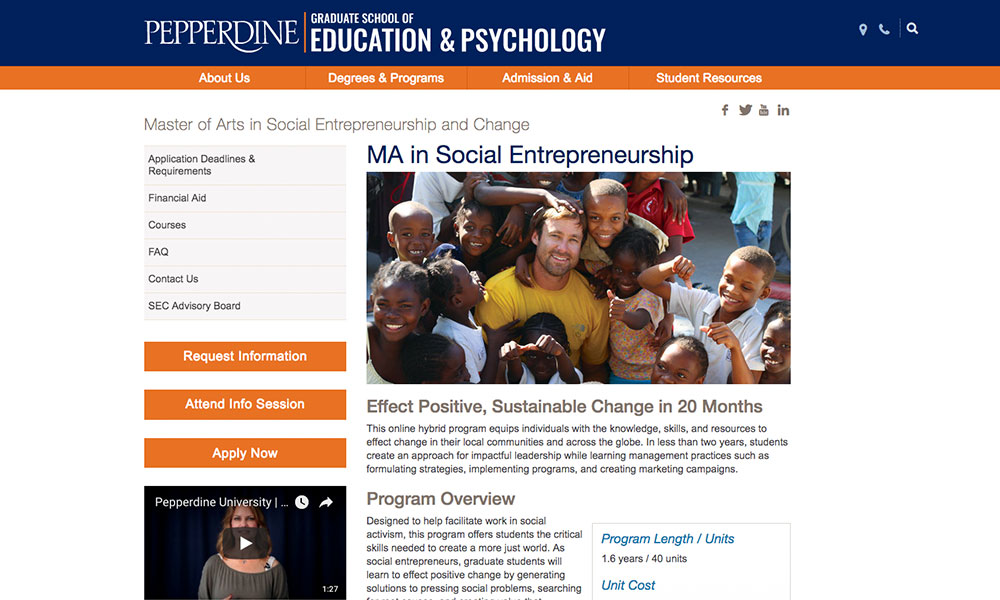
Curriculum:
Format:
Notable:
Presidio Graduate School
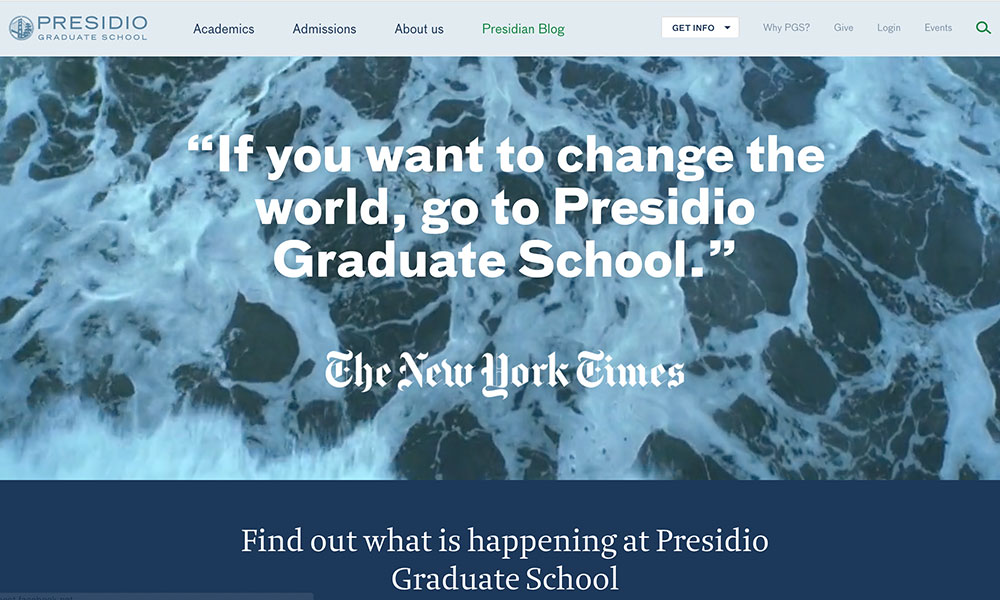
Curriculum:
Format:
Notable:
African Leadership University School of Business
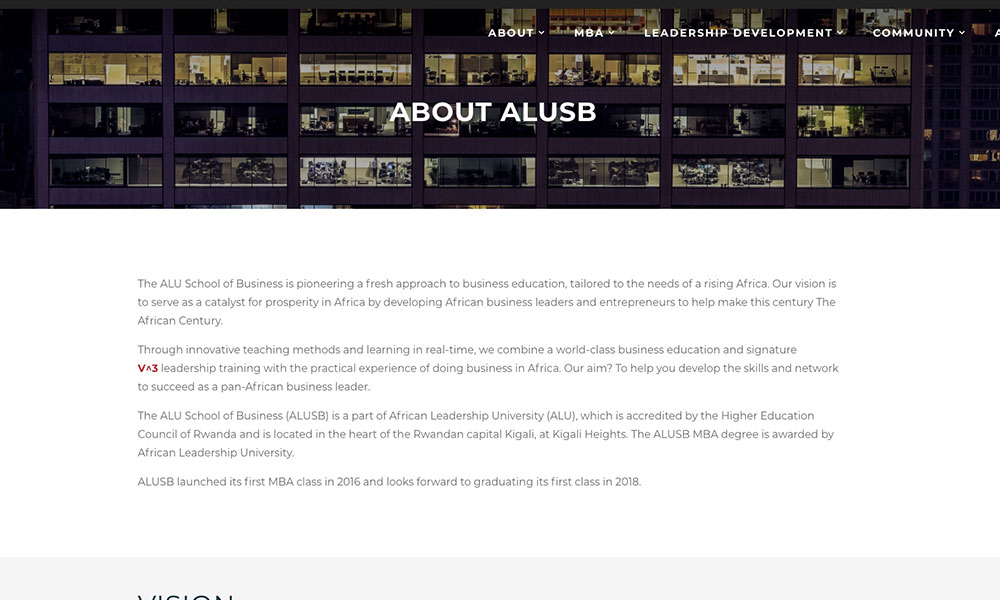
Curriculum:
Format:
Notable:
Bard University
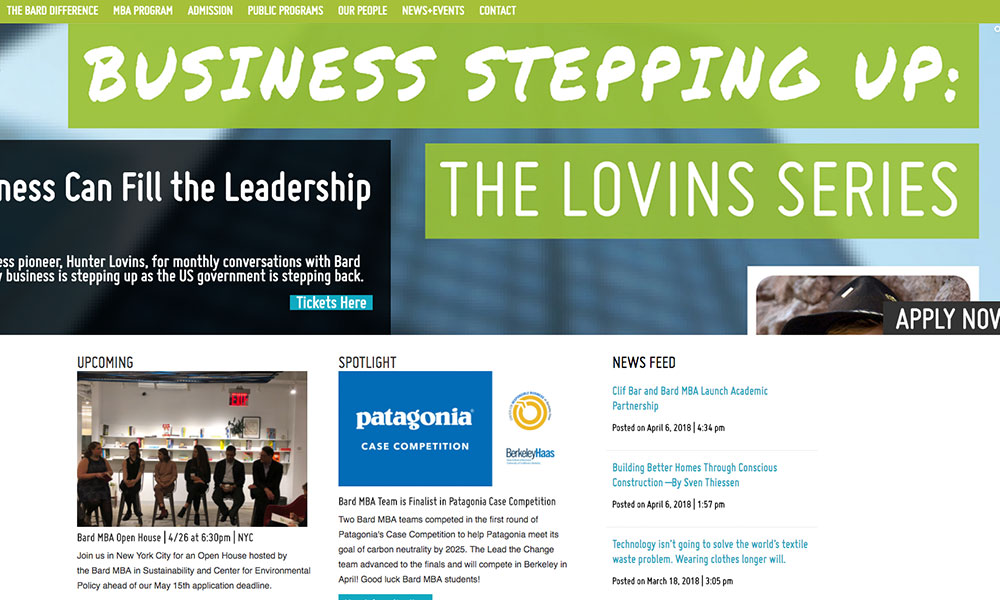
Curriculum:
Format:
Notable:
Parsons School of Design
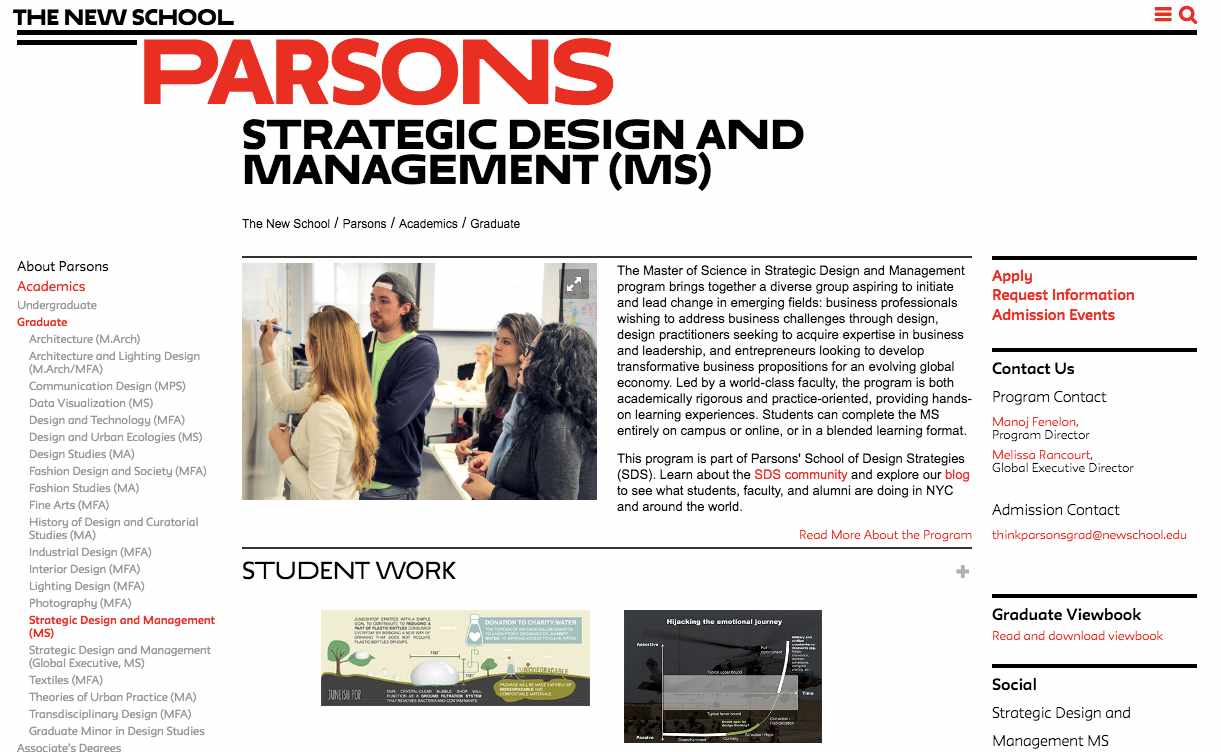
Curriculum:
Format:
Notable:
London School of Economics
Curriculum:
Format:
Notable:
Lynn University

Curriculum:
Format:
Notable:
Online degree programs
Online programs offer students the opportunity to complete their studies virtually.
Hec Paris (via Coursera)
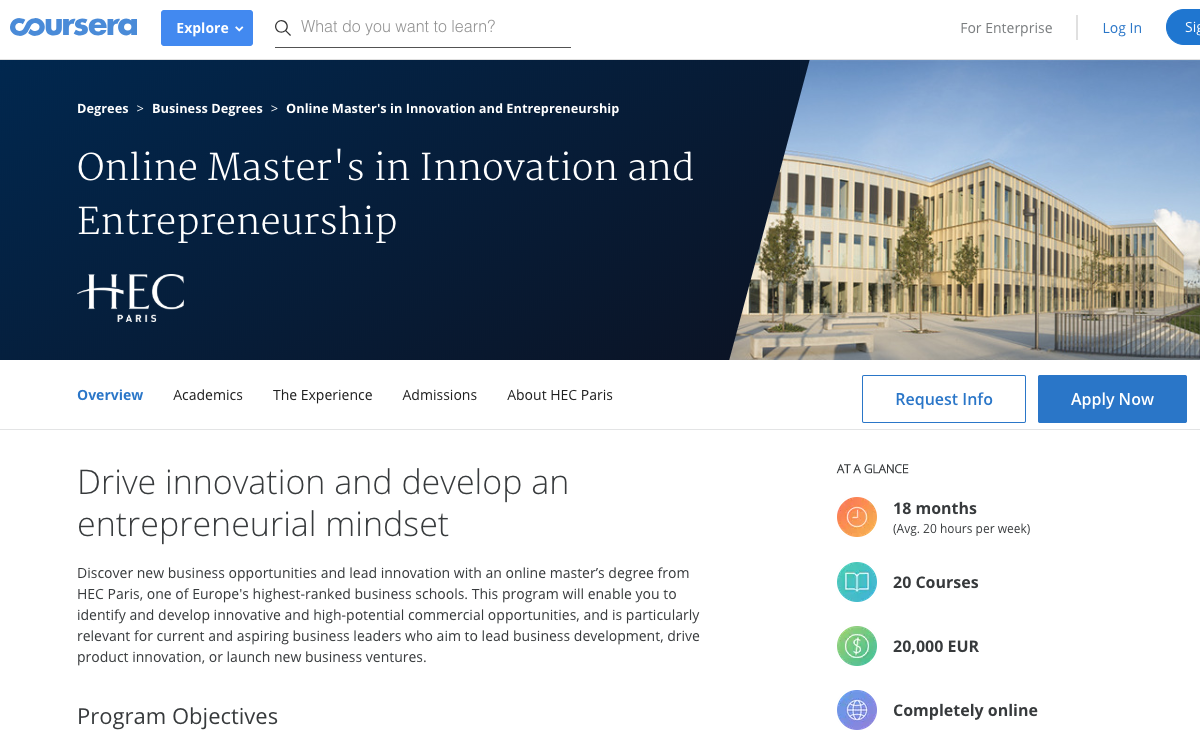
Curriculum:
Format:
Notable:
UNSW Sydney
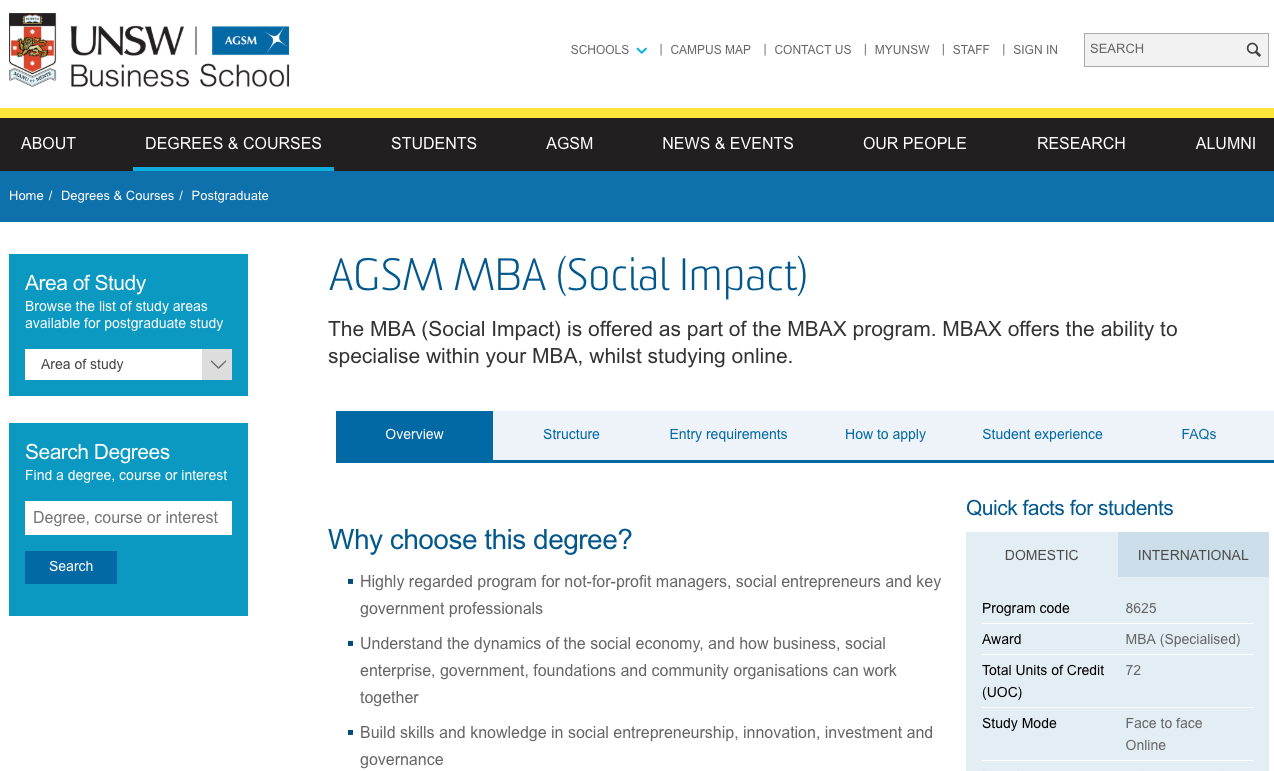
Curriculum:
Format:
Notable:
The fully online study option provides asynchronous learning between students and facilitators. Students learn in classes of ~25 students at a time.
Looking for a quicker way into addressing a specific social issue or challenge? Check out FREE course Start Your Social Change Journey – and start taking the first steps to sustain your social impact efforts and keep your goals on track.
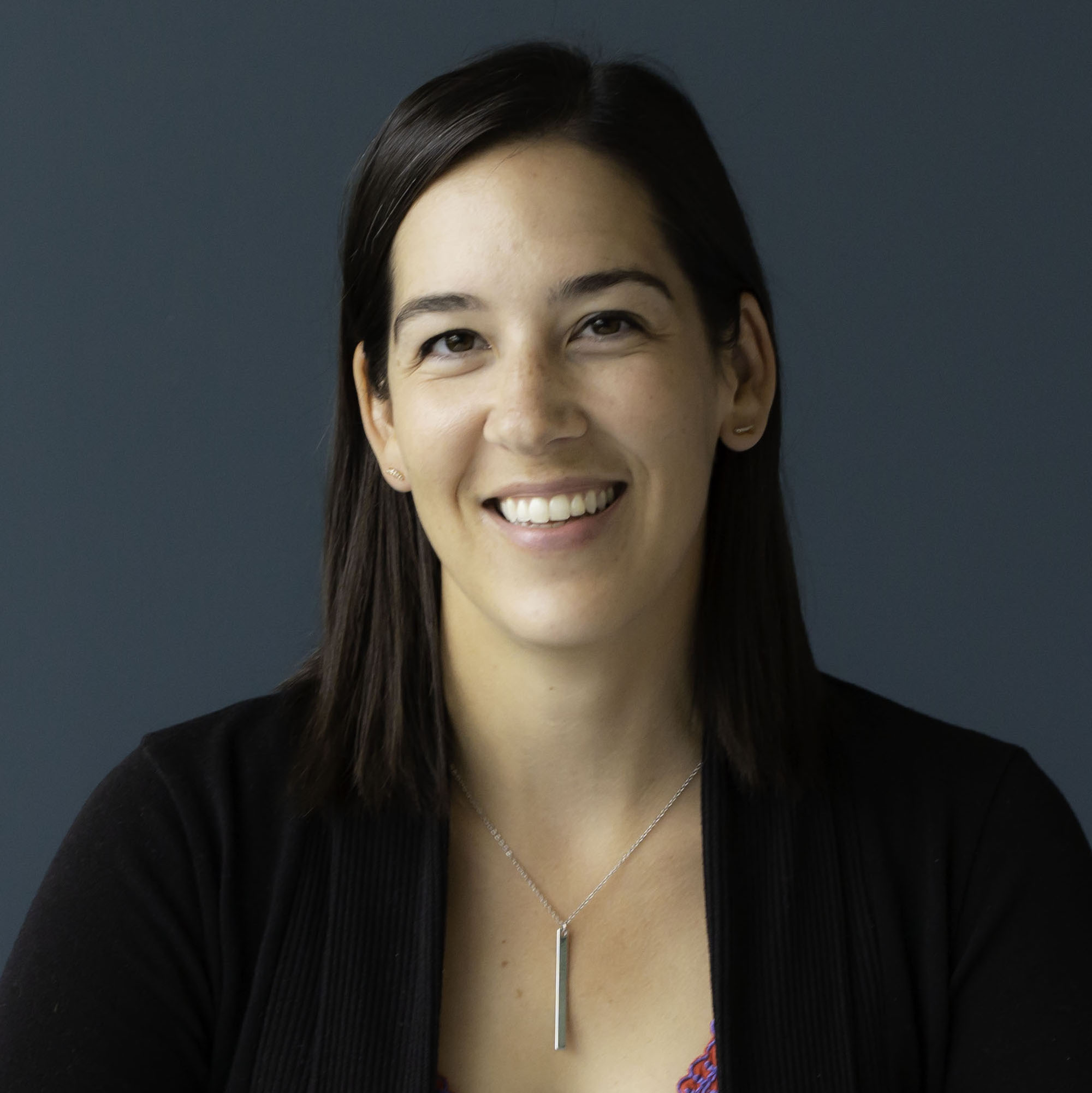
Author
Danielle Sutton
Danielle Sutton is the Content Animator at Acumen where she surfaces stories to inspire and activate social entrepreneurs. In an age of information overload, she believes in learning 'the right thing at the right time' to intentionally design impactful social enterprises. You can usually find Danielle digging into the Acumen course library, playing in the mountains, or exploring marketing on The Sedge blog.
